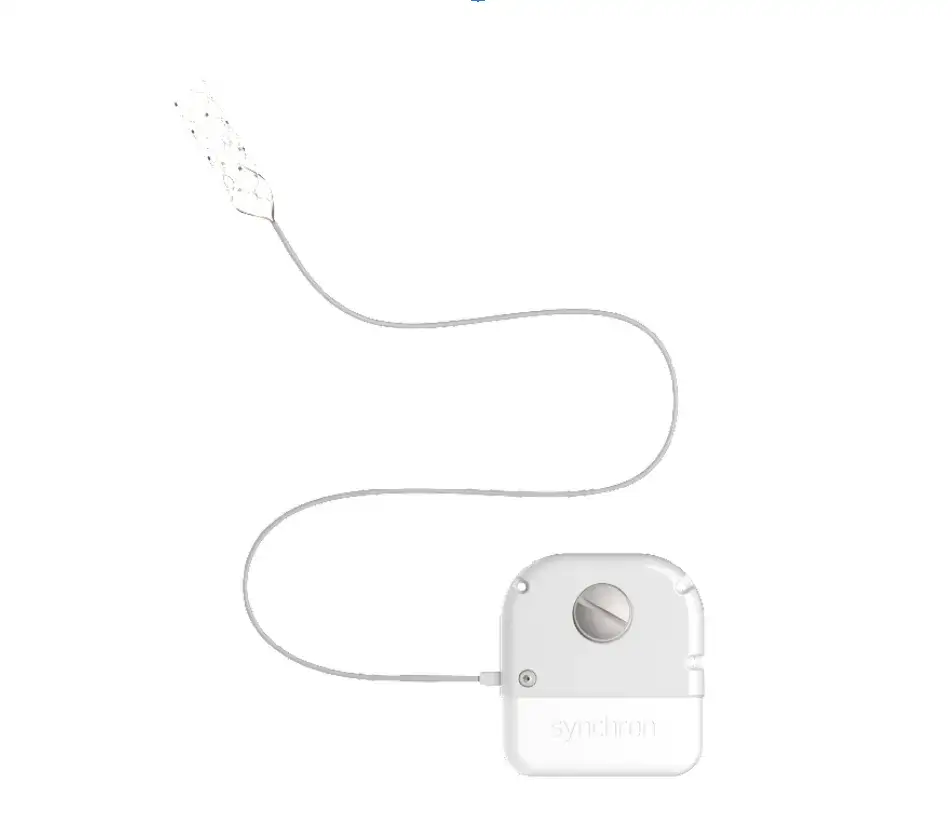Imagine controlling your devices with nothing more than your thoughts. It sounds like science fiction, but a brain implant startup called Synchron is turning this into reality. Backed by tech giants Jeff Bezos and Bill Gates, Synchron is making headlines for its groundbreaking work in brain-computer interfaces (BCI), a technology designed to empower those with severe mobility issues.
What is Synchron?
Founded in 2012, Synchron is one of the key players in the growing BCI industry. BCIs allow direct communication between the brain and external devices, enabling individuals with severe paralysis or degenerative conditions, like ALS, to interact with their environment using just their thoughts. It’s as futuristic as it gets, yet this technology is no longer just an idea—it’s happening right now.
But what sets Synchron apart from the competition is its non-invasive approach. Unlike other brain-computer interfaces that require risky open-brain surgery, Synchron’s technology is much safer, leveraging a technique known as endovascular implantation.
How Does the Technology Work?
Synchron’s flagship product, the Stentrode, is implanted into the brain through blood vessels. This avoids the need for surgery on the brain itself. The procedure is similar to inserting a stent into arteries, a method that’s been used in medical science for decades. The Stentrode is equipped with sensors that capture brain signals and send them to an antenna placed under the skin. From there, these signals are transmitted wirelessly to external devices like computers, smartphones, or smart home systems.
This innovation is life-changing for people with paralysis. Imagine being able to control a computer cursor, manage your smart home, or send a text message simply by thinking about it. This is what Synchron’s BCI makes possible.
Real Stories: Lives Transformed
One of the most inspiring examples of the technology in action is Philip O’Keefe, a patient with ALS. He was one of the first people to be implanted with Synchron’s BCI and, in December 2021, became the first person in the world to tweet using a brain-computer interface. His message? “Hello, world! Short tweet. Monumental progress.” That’s not just a tweet—it’s a testament to how far we’ve come in using technology to improve quality of life.
O’Keefe is just one of many who are already seeing the benefits of this groundbreaking technology. So far, Synchron has conducted trials in both the U.S. and Australia, with seven patients having undergone the procedure successfully. The impact goes beyond just being able to communicate—it’s about restoring a sense of independence that many have lost due to their conditions.
Competing in a Growing Market
Synchron isn’t alone in the BCI race. Neuralink, founded by Elon Musk, is perhaps the most high-profile competitor. Neuralink’s technology involves implanting a chip directly into the brain tissue—a more invasive approach that has yet to reach human trials. While both companies aim to revolutionize how we interact with technology, Synchron’s less invasive method gives it a potential edge when it comes to accessibility and scalability.
In fact, Peter Yoo, Senior Director of Neuroscience at Synchron, emphasized the advantages of their approach. “There are roughly 2,000 interventionalists who can perform the procedure needed for our system,” Yoo said. That’s far more scalable than the limited number of neurosurgeons who can perform open-brain surgery.
What’s Next for Synchron?
The Food and Drug Administration (FDA) has granted Synchron the Breakthrough Device Designation, a recognition given to devices that offer new treatments for life-threatening conditions. In 2021, Synchron became the first company to receive an Investigational Device Exemption from the FDA, allowing them to test their technology on human patients. This puts Synchron at the forefront of turning brain-controlled technology into a real-world medical solution.
While still in the trial phase, Synchron is gearing up for commercialization. The company has raised over $75 million in funding, including contributions from the investment arms of Bill Gates and Jeff Bezos. This funding will help accelerate the development and testing of their devices, bringing the company closer to its ultimate goal: making mind-controlled technology widely available to those who need it.
Why This Technology Matters

Source: Synchron
For people suffering from conditions that severely limit mobility—like ALS, strokes, or spinal cord injuries—Synchron’s BCI represents hope. The ability to perform simple tasks like texting a loved one, browsing the web, or even managing household chores without physical movement can restore a sense of freedom and dignity that many thought they had lost forever.
Tom Oxley, CEO of Synchron, spoke about the emotional impact the technology has had on patients and their families. “Restoring the ability to text message loved ones is a very emotional restoration of power,” he said. This goes beyond just technology—it’s about human connection.
Looking Forward
The journey to commercialization is still underway, but the future looks bright for Synchron. With backing from some of the world’s wealthiest individuals and a growing list of successful patient stories, Synchron is well on its way to changing the way we think about technology and the human brain.
In the coming years, as trials expand and the technology becomes more refined, we may see brain-computer interfaces like Synchron’s Stentrode become as commonplace as smartphones or wearables. And when that happens, we’ll look back on moments like O’Keefe’s tweet and realize that it wasn’t just monumental progress—it was the beginning of a revolution.
Stay updated on the latest breakthroughs in mind-controlled technology and learn more about how Synchron is changing lives by visiting their website. Follow us for more tech innovations and inspiring stories!

